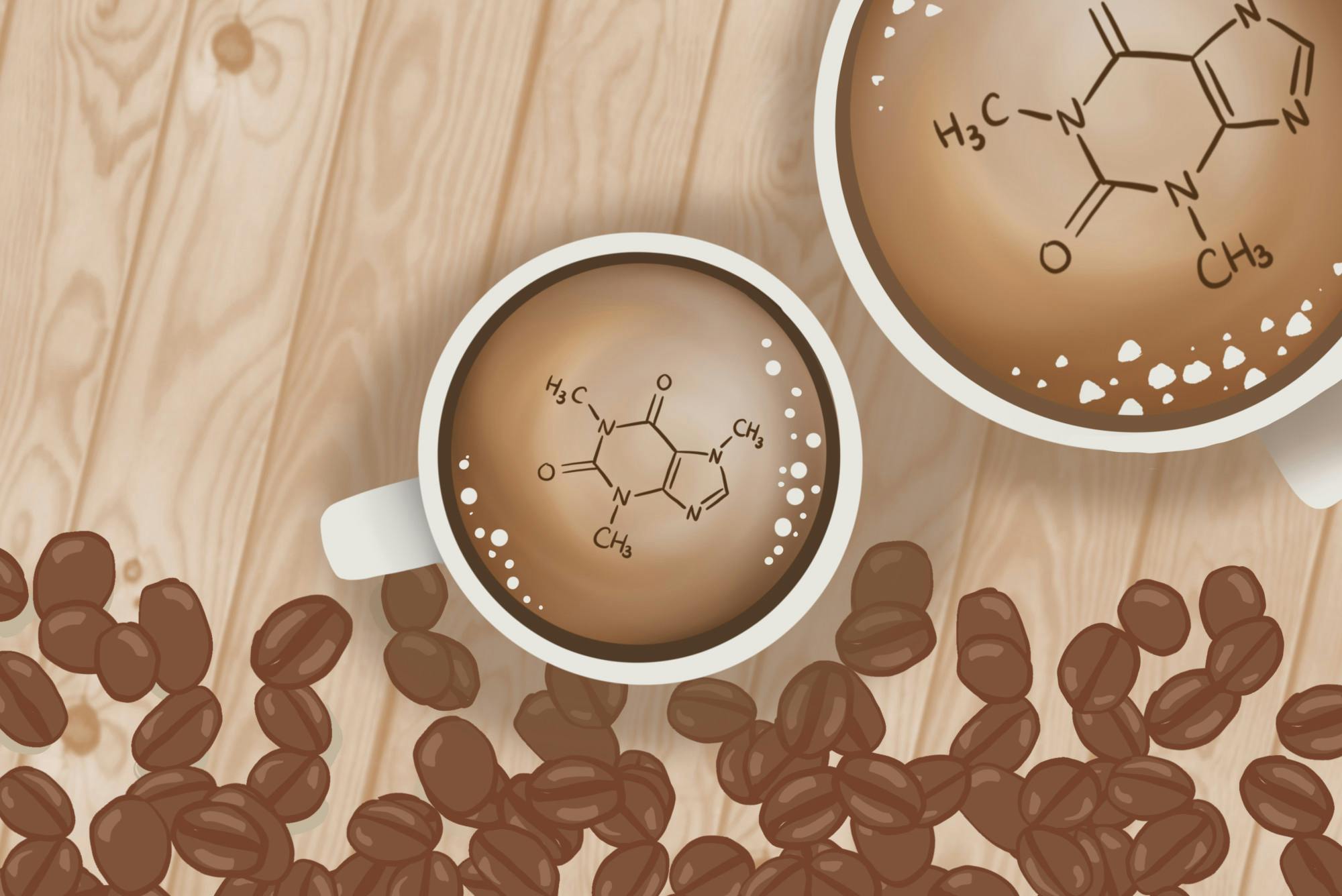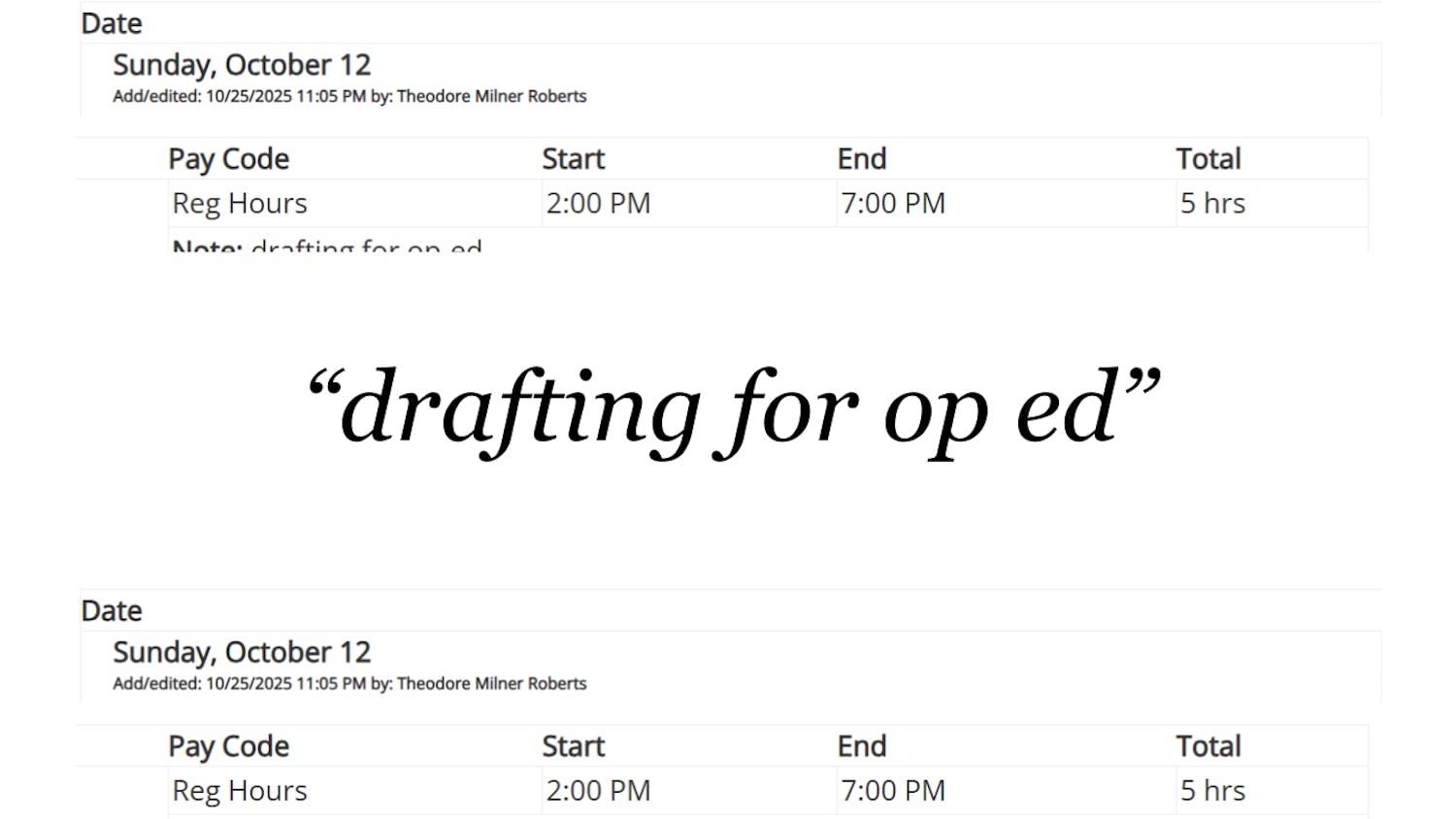It’s impossible to walk around campus in the morning without seeing at least a few students holding a caffeinated drink in their hand. Some students rely on their daily iced coffees from Novack or a green tea from Collis, while others swear by a Diet Coke from the Hop or an energy drink from a vending machine.
The most widespread form of caffeine consumption is through coffee beverages, though caffeine is present in a variety of beverages including soft drinks and tea. Though caffeine is reportedly used regularly by over 80% of U.S. adults, college students are particularly likely to use caffeine, consuming up to 850 mg/day, approximately double the recommended safe dosage by the FDA.
Caffeine exerts its effects primarily by partially blocking the function of adenosine receptors. This contributes to its effects as a stimulant to increase brain and nervous system activity, thereby increasing circulating concentrations of epinephrine, better known as adrenaline.
In short, caffeine seems to promise a boost of energy, an enticing draw especially in Dartmouth’s fast-paced world. Sophie Xu ’27 said she never consumed caffeine in high school except on a handful of occasions when she needed the boost. During her first term at Dartmouth, however, she started drinking energy drinks and coffee regularly.
“I had to do a lot of adjustment my first term and my time management wasn’t great,” she said. “I spent a lot of time socializing and trying new things and didn’t optimize my time where I could. The goal with drinking Celsius [energy drinks] was to not fall asleep during class.”
Lejo Rincón ’25 has seen many people experience caffeine’s benefits during his work shifts at Novack.
“People are like zombies before they come through Novack and once they come, they light up and come back to life,” he said. “During midterm weeks, some people pull all nighters to cram … so they come at the beginning of Novack opening to get a few shots [of espresso] or a Monster [energy drink].”
For many students, their dependence on caffeine seems to stem from the hope that it will allow them to spend more time awake, giving them more time to study and improve their academic performance.
“With the intense workload that you have to do while you’re here, it’s very easy to tell yourself to take caffeine to get work done quicker … it’s like a positive feedback loop,” Rincón said. “Once you start drinking caffeine, you’re gonna start relying on it and then needing more.”
Alex Misiaszek ’25 touched upon the student urge to drink caffeine not only to stay awake, but also as a function of Dartmouth’s competitive environment.
“I feel like people use their caffeine intake as a kind of competitive thing,” he explained. “Like, ‘I studied harder than you because I needed 10 cups to get up this morning,’ which is kind of weird. Whereas the competition should be ‘I got eight hours of sleep last night.’”
Rincón echoed Misiaszek’s observation, saying he feels this pressure within and outside of Dartmouth’s campus.
“[Caffeine addiction] is a forced lifestyle by Dartmouth, but also the larger society we live in to produce, produce, produce — hustle culture, basically,” Rincón said. “It demands us to have this insane amount of endless energy to perform at our best all the time, which is naturally impossible.”
Psychiatric studies have shown that individuals who regularly consume caffeine develop a physical, emotional and psychological dependence on the substance. With abrupt discontinuation, they may experience withdrawal symptoms, including headaches, fatigue, drowsiness and a depressed mood.
Syed Hussaini ’24 mentioned that he hopes to rely on caffeine less post-graduation.
“[Cutting back] is something I’m saving for after I graduate, since the few days I have tried going without coffee have not been great in terms of my mood or academic performance,” he said.
Though caffeine in low to moderate doses can enhance vigilance and visual attention and encourage sociability, elevated caffeine use has been linked to poorer academic performance, poorer sleep quality and quantity, feelings of anxiety or jitteriness and an upset stomach among college students.
“If I had no caffeine, I think I wouldn’t be able to function really, which is a positive benefit to drinking a Monster in the morning” Misiaszek said. “But it’s a fine line because with too much caffeine, I get super jittery and it negatively affects my academic performance because it makes it harder to focus.”
Rincón does his best to not drink caffeine if he can because of these side effects.
“I don’t want to [consume caffeine] in the first place, since it keeps me up at night and then I get less sleep that’s also not good [quality],” Rincón said. “This artificial energy won’t do the same as a good night’s sleep would for my ability to think critically.”
Elizabeth Lee ’24 stated that her relationship with caffeine encompasses both the positive and negative effects.
“Caffeine makes me feel anxious … and not necessarily more focused,” she said. “Though I don’t really love the feeling of it, I like the social aspect of it, like going to coffee shops with friends and trying new drinks.”
The beverage itself also provides an enjoyable experience for students such as Brooke Baptista ’24.
“I love the taste of coffee,” Baptista said. “I treat myself to a coffee every afternoon and it encourages me to work hard because I know I’m rewarding myself.”
Though it’s easy to cross the line to become addicted to caffeine and/or experience the negative side effects that accompany the stimulant, there’s no denying that “[A coffee] is my little five bucks of happiness,” as Hussaini says.




